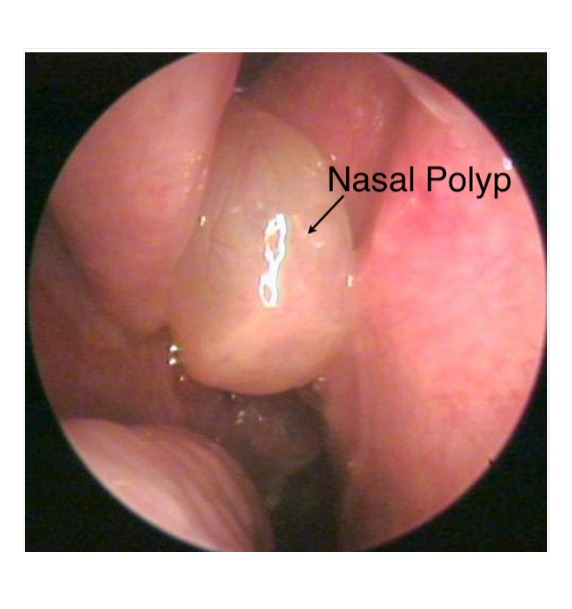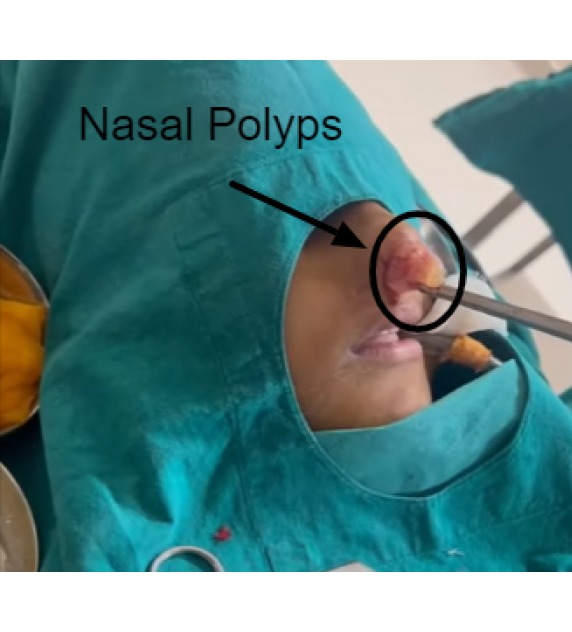Definition
Nasal polyps and tumors are growths that can develop in the nasal passages. While they share some similarities in terms of their location, they differ in nature and potential consequences. Nasal polyps are noncancerous, soft, and often benign growths, whereas nasal tumors can be benign or malignant (cancerous) and require more extensive evaluation and treatment.

Causes of Nasal Polyps and Tumors
Several factors can contribute to the causes of Nasal Polyps:
Nasal Polyps: The exact cause of nasal polyps is not always clear, but they are often associated with chronic inflammation, allergies, asthma, or sinus infections. Genetic factors may also play a role.
Nasal Tumors: Nasal tumors can have various causes, including exposure to environmental toxins, certain infections, genetic factors, or, in some cases, they may be linked to pre existing medical conditions.
Symptoms of Nasal Polyps and Tumors:
The symptoms of nasal polyps and tumors can overlap, and both may present with:
Nasal Congestion: Difficulty breathing through the nose due to obstruction.
Runny Nose: Excessive nasal discharge.
Reduced Sense of Smell: Impaired ability to detect odors
Facial Pain or Pressure: Discomfort in the facial area.
Postnasal Drip: Mucus draining from the back of the throat.
Headaches: Especially if there is sinus involvement.
Nosebleeds: In some cases of nasal tumors.
However, nasal tumors may also cause additional concerning symptoms such as a persistent nosebleed, changes in vision, double vision, facial numbness, or a lump or mass in the nasal region.

Treatment of Nasal Polyps and Tumors:
Nasal polyps treatment approaches differ for nasal polyps and tumors:
Nasal Polyps:
1. Medications: Corticosteroid nasal sprays or oral corticosteroids can help reduce inflammation and shrink polyps.
2. Nasal Irrigation: Regular use of saline irrigation may help manage polyps.
3. Allergy Management: Controlling allergies can reduce the likelihood of polyp recurrence
4. Surgery: For large or persistent polyps, endoscopic sinus surgery may be required to remove them.
Nasal Tumors:
1. Biopsy: A biopsy is crucial to determine if the tumor is benign or malignant.
2. Surgery: Surgical removal of the tumor may be necessary, often followed by radiation therapy or chemotherapy for cancerous tumors.
3. Radiation Therapy: Used to target and shrink tumors, especially if they cannot be surgically removed.
4. Chemotherapy: Employed for cancerous tumors that may have spread to other areas of the body.
Management and Prevention
For both nasal polyps and tumors:
Regular Check-Ups: Routine visits to an ear, nose, and throat specialist can help monitor nasal health
Allergen Control: Managing allergies can reduce the risk of nasal polyps.
Tobacco Avoidance: Avoiding tobacco smoke and environmental toxins can minimize risk factors.
Prompt Evaluation: Seeking medical evaluation for persistent symptoms, especially nosebleeds, is crucial for early diagnosis and management.
Summary
Nasal polyps are noncancerous growths that often result from inflammation or underlying conditions and can cause nasal congestion and other related symptoms. Nasal tumors can be benign or malignant and require more extensive evaluation and treatment, potentially causing concerning symptoms like nosebleeds or vision changes. Treatment varies depending on the diagnosis, with medications, surgery, and other therapies playing a role. Regular check-ups, allergen control, and early evaluation of persistent symptoms are vital for effective management and prevention. Consultation with a healthcare professional or specialist is essential for accurate diagnosis and the development of an appropriate treatment plan.


